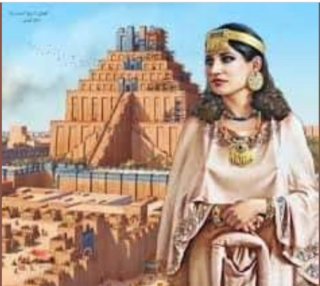!The first poet in history

Enheduanna (2285-2250 BC)
Her name is Enheduanna or En-Hedu-Ana, and (It means the high priest or priestess, and Hedo means adornment or garment, and its meaning is adornment of the high priest of the god An, and it is a name that refers to the god Nanna (Sin), the god of the moon).
She is an Akkadian princess (daughter of King Sargon of Akkad, and her mother is a high-ranking priestess of the moon god Nanna (Sin))
The high priestess of the Sumerian moon god Nanna in the city of Ur (the oldest known figure to hold this title), a position of important political privilege that was usually held by the daughters of kings.
Enheduanna was the aunt of the Akkadian king Naram-Sin and is one of the oldest women known by name
Literary and historical scholars consider her the oldest woman writer and poet of love and sex. Enheduanna reached the highest priestly rank in the third millennium BC. She was appointed by her father, King Sargon of Akkad, and she had a prominent role during the rule of her father and mother, Queen Tashlultum.
The reason that prompted historians and researchers to consider “Enhedu I” the first poet in history is that she used to append her name to the tablets of her poems, while the poetry tablets had been written before him They were devoid of the names of their authors, and some of them bore the names of the scribes of these poems and not the names of their authors.” All of her available poems were collected, and they amounted to about 42 poems.”
She left a group of literary works that include poems dedicated to the goddess Inanna and a group of hymns known as “Sumerian temple hymns.” They are considered the first attempts at systematic divinity, and some scholars, such as William Hallow and Van Dyck, attribute certain works to her even though they were not explicitly mentioned by name.
Sargon appointed Enheduanna to the position of High Priestess in a move that caused a great stir in order to secure his power in southern Sumeria, where the city of Ur was located.
!The writer (William Hallow) described this poet as “the Shakespeare of Sumerian literature”....
Source: websites

